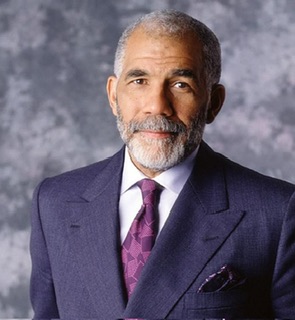
Edward Rudolph “Ed” Bradley, Jr. (June 22, 1941 – November 9, 2006) was a journalist with award-winning work on 60 Minutes.
Ed Bradley was a pioneering journalist known for breaking barriers and his extensive work on CBS's "60 Minutes." Ed Bradley made significant contributions to journalism, especially in diversifying the media landscape while covering a wide range of impactful stories.
He began his career teaching before moving into broadcasting, where he excelled and became the first Black television correspondent to cover the White House. His reporting from Vietnam during the fall of Saigon and his anchoring of CBS Sunday Night News were also landmark achievements in broadcast journalism.
Throughout his career, Bradley's versatility shone through in his reporting, covering everything from hard-hitting political stories to lighter features on music and culture. His interviews with an eclectic array of figures, including musicians, politicians, and cultural icons, highlighted his ability to connect deeply with his subjects and television audiences alike.
His legacy includes numerous awards, such as the Emmys and the Peabody Award, recognizing his exceptional contributions to journalism. His impact on aspiring journalists, particularly minorities, is evident in the way he inspired me as well as many others and broke down barriers in the industry.
It's heartening to recall my connections with him and how I have shared his story with my students. Bradley's life and career continue to serve as an inspiration for those striving to make a difference in journalism and beyond.
I first had the opportunity to interview Ed while writing a thesis on the lack of minorities in the news media. He answered my questions and was hopeful things would improve. He made this Latino graduate student feel proud and valued. Years later while teaching as a journalism faculty at NYIT, I ran into him on Broadway while he was flagging down a cab, and he was nice enough to remember and chit-chat, shortly before his untimely death. Years later, while teaching at one of America’s HBCUs, I made it a point to introduce my journalism students to this larger-than-life news pioneer.
Ed broke the color barrier in TV News. He covered the fall of Saigon, was the first Black television correspondent to cover the White House, and anchored his news broadcast, CBS Sunday Night News with Ed Bradley. He received several awards for his work including the Peabody, the National Association of Black Journalists Lifetime Achievement Award, Radio Television Digital News Association Paul White Award, and 19 Emmy Awards.
He graduated from Cheyney State College graduating with a BA in Education. His first job was teaching sixth grade at the William B. Mann Elementary School in Philadelphia’s Wynnefield community. He moonlighted at the old WDAS studios, working for free and, later, for minimum wage. He programmed music, read the news, and covered basketball games and other sports.
Ed produced over 500 stories, covering nearly every possible type of news, from “heavy” segments on war, politics, poverty, and corruption, to lighter biographical pieces, or stories on sports, music, and cuisine. He interviewed Howard Stern, Laurence Olivier, Subcomandante Marcos, Timothy McVeigh, Neil Armstrong, Michael Jackson, Mick Jagger, Bill Bradley, the 92-year-old George Burns, and Michael Jordan, he conducted the first television interview with Bob Dylan in 20 years. Some of his quirkier moments included playing blackjack with Ray Charles, interviewing a Soviet general in a Russian sauna, and having a practical joke played on him by Muhammad Ali. His favorite segment on 60 Minutes was when he interviewed 64-year-old singer Lena Horne. He said, “If I arrived at the pearly gates and Saint Peter said, ‘What have you done to deserve entry?’ I’d just say, ‘Did you see my Lena Horne https://www.youtube.com/watch?v=lpv9tOOMk1c
Remembering Ed https://youtu.be/51hNMfOBtZI?si=65vW679sJdGvK9Gn